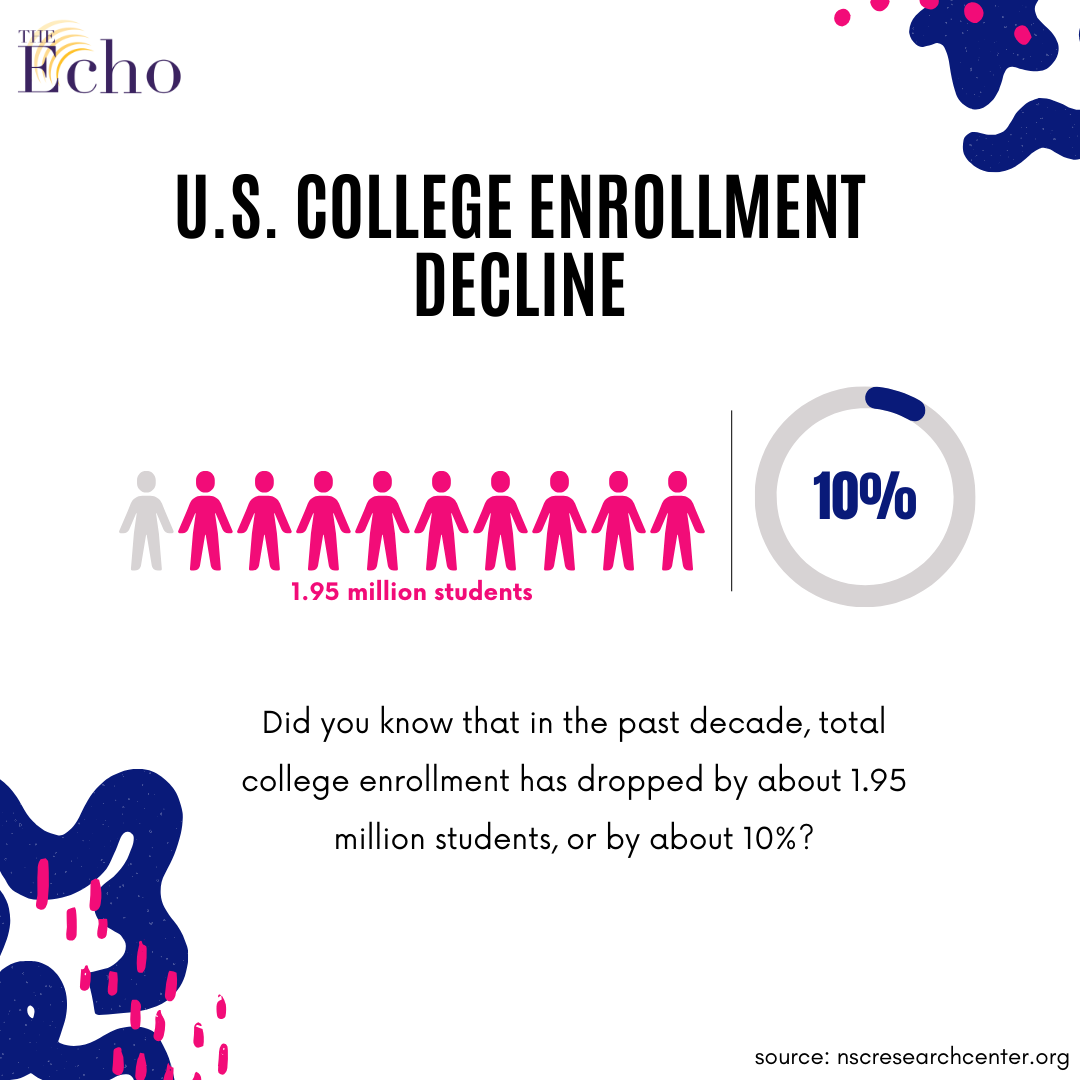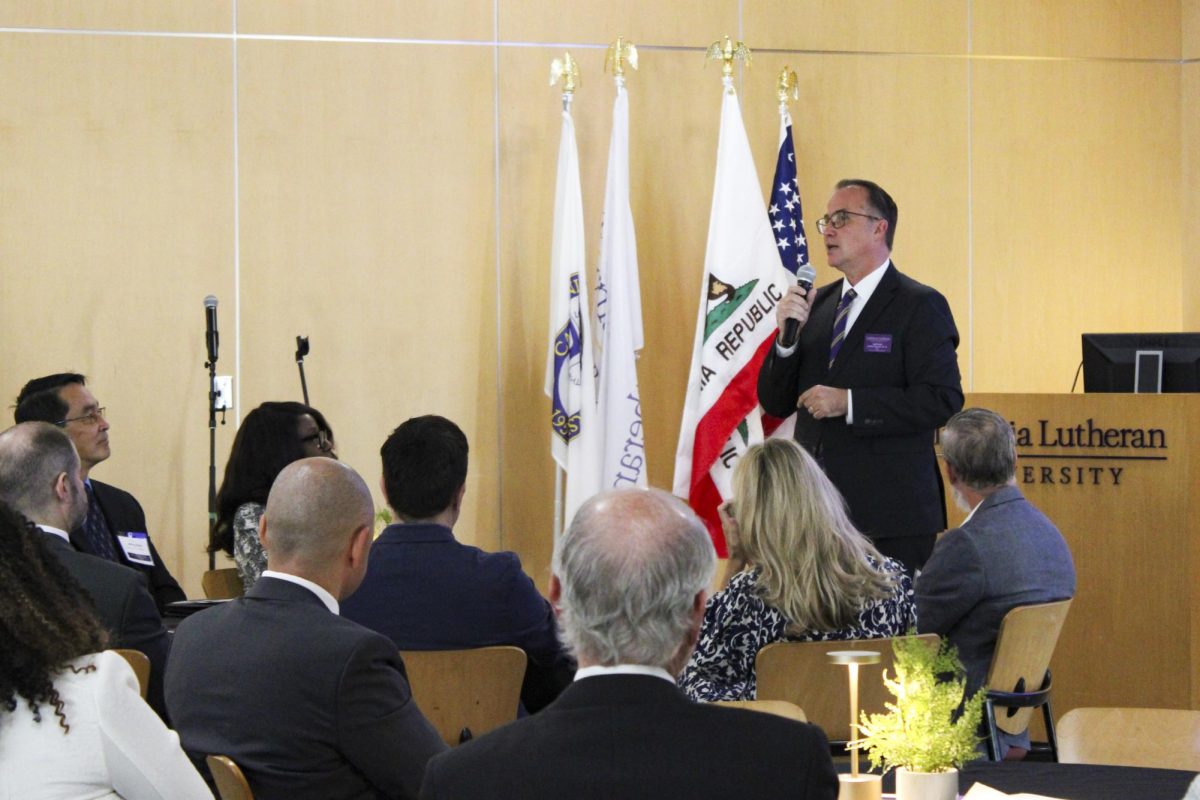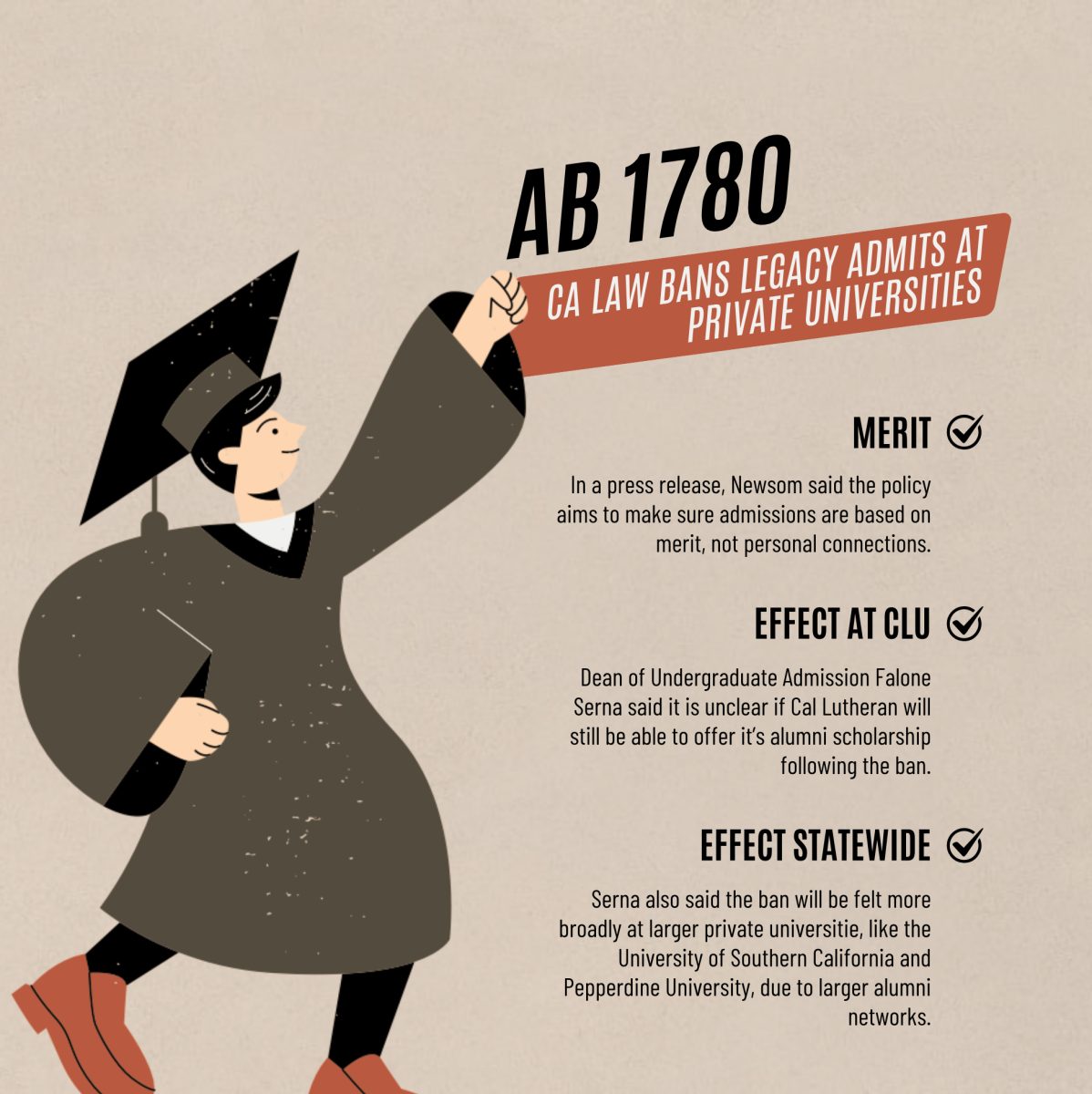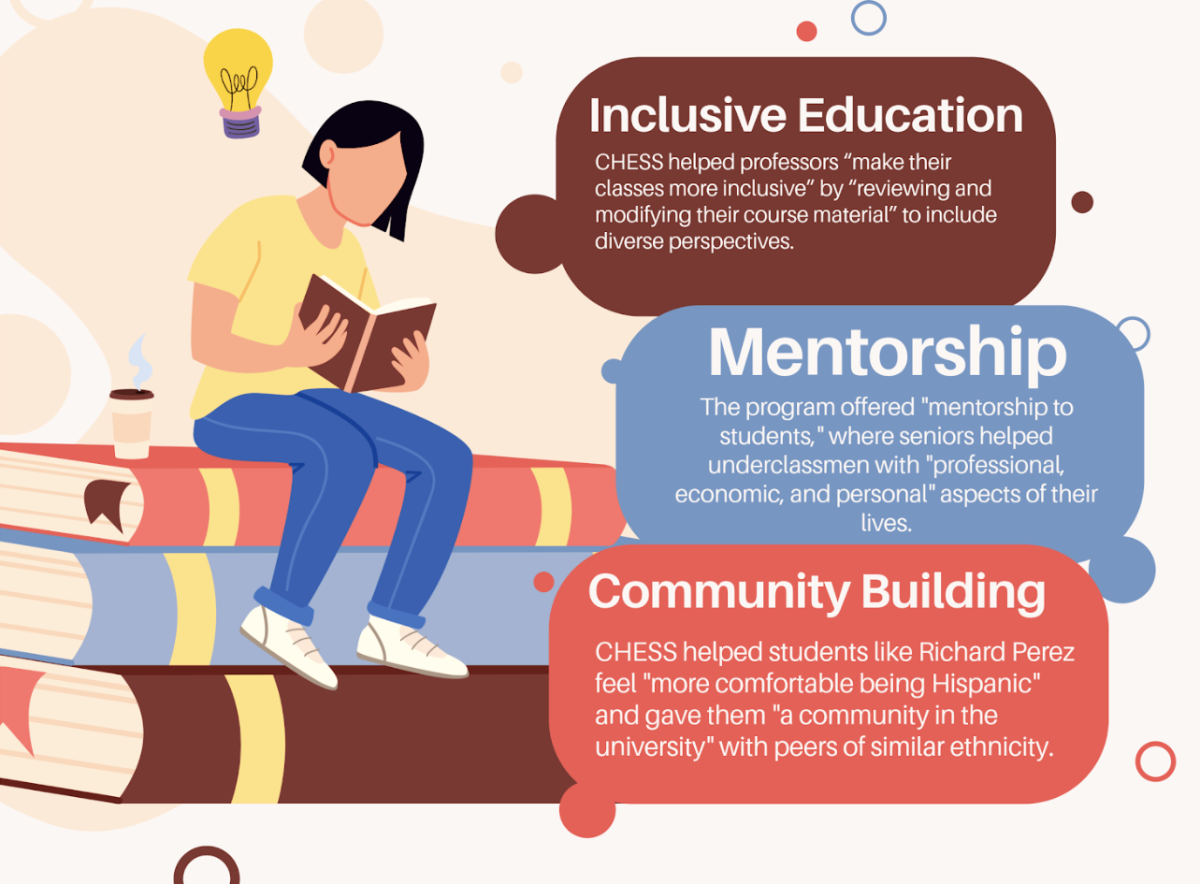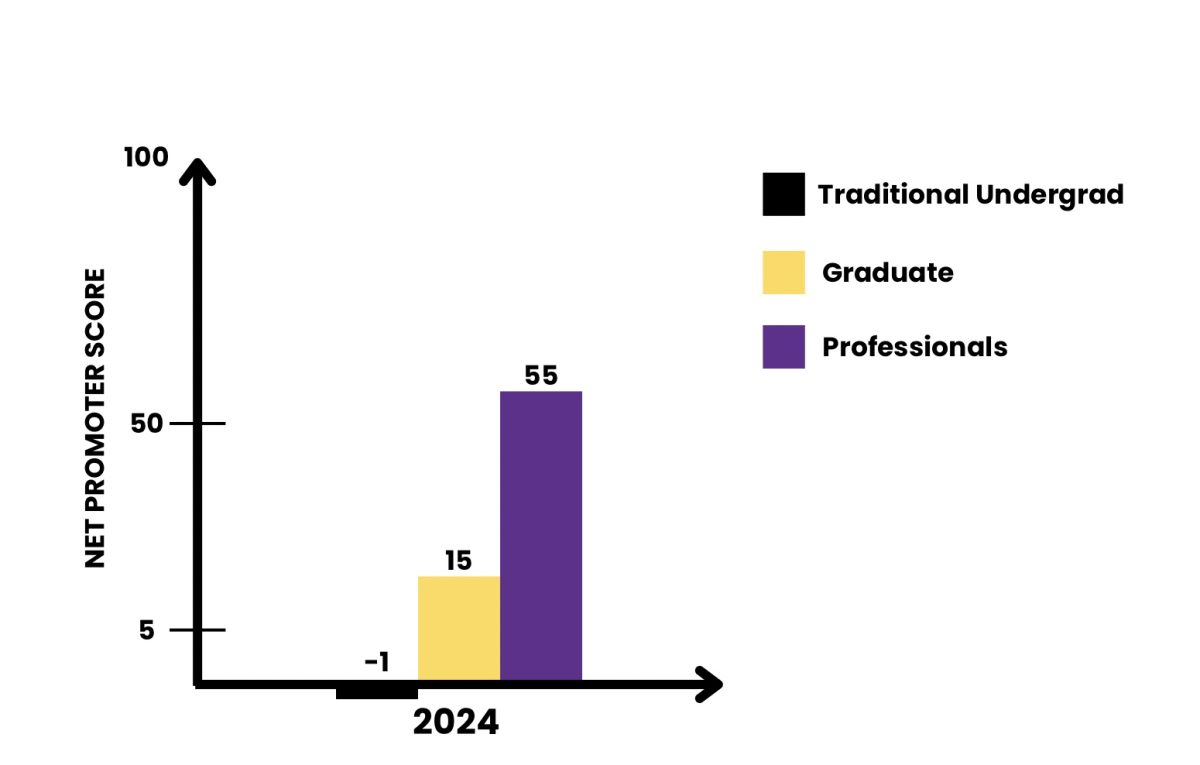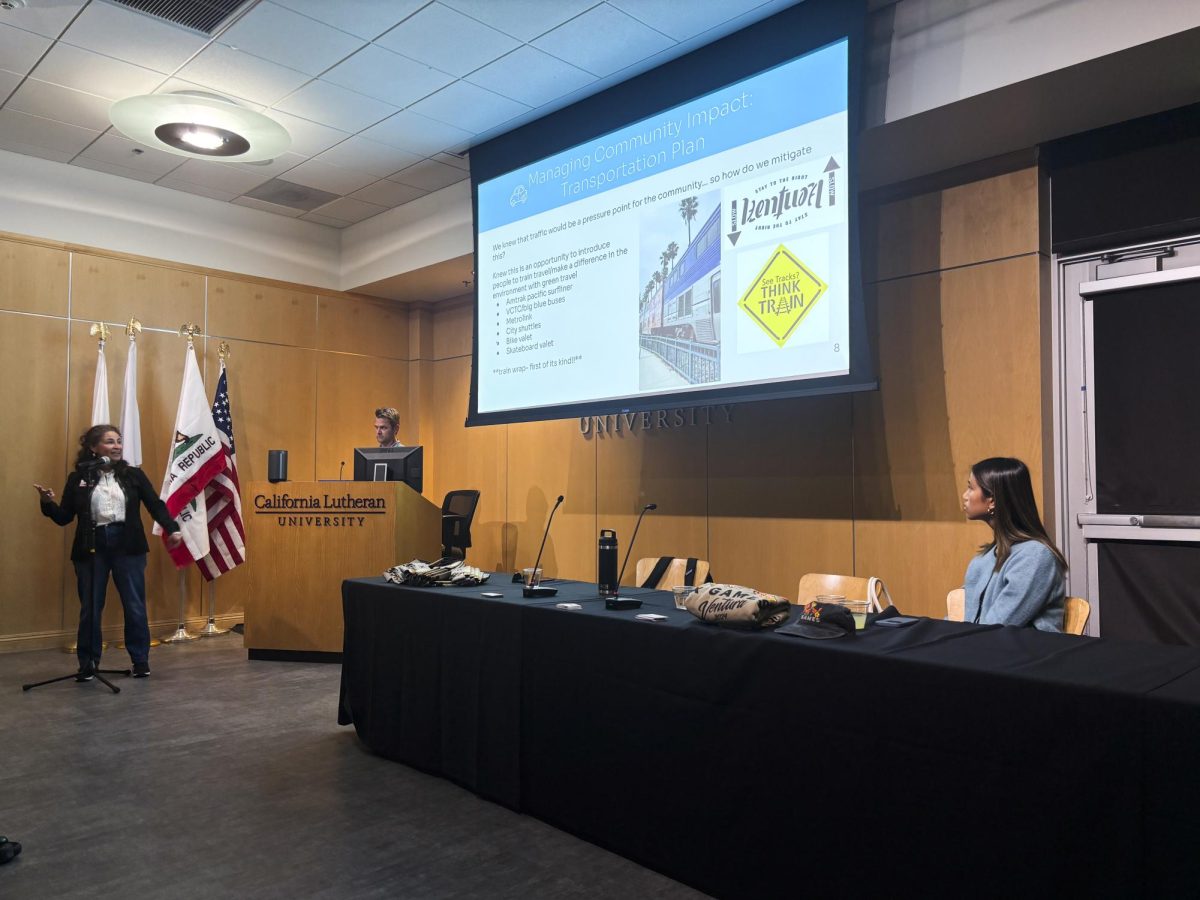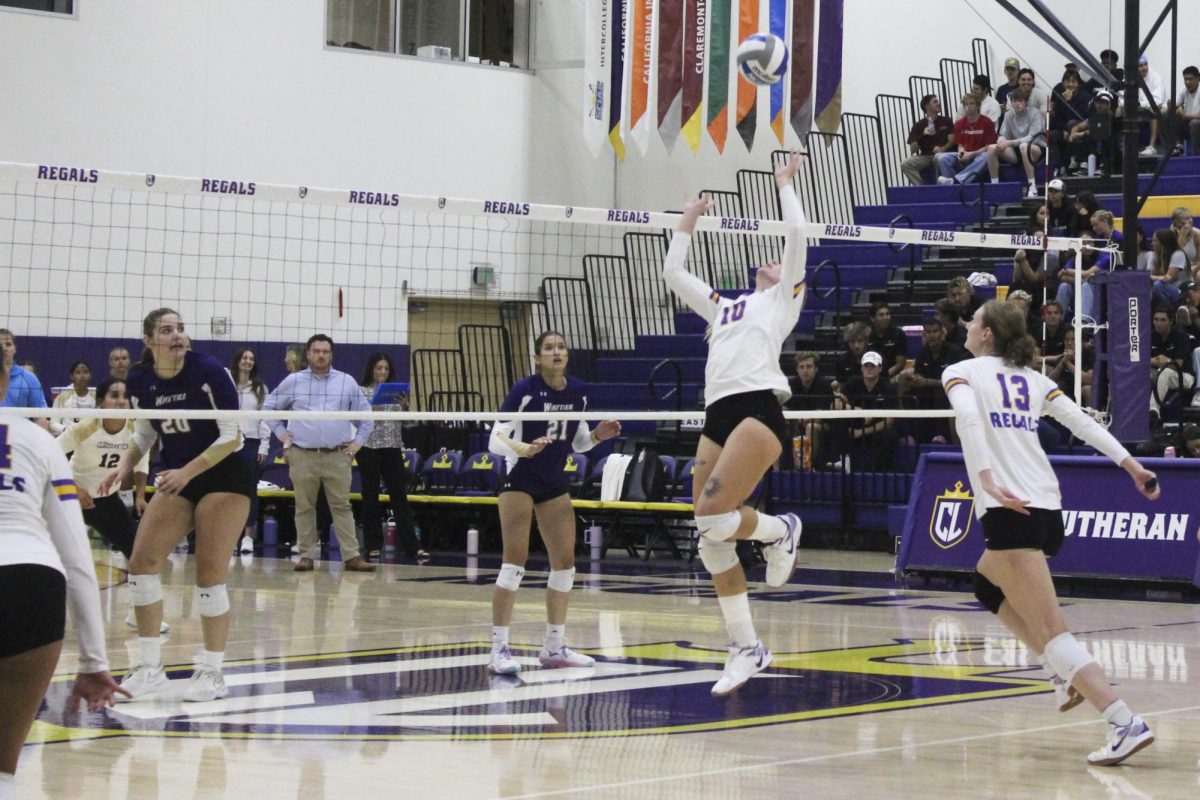According to Universities.com, 10 states are currently struggling with low enrollment numbers and class shortages, both in primary and higher education.
“The COVID-19 pandemic definitely had an impact in terms of lower enrollment, which has led to smaller class sizes,” Associate Vice President and Registrar Maria Kohnke said. “California Lutheran University is currently working to offer all of the classes it would like to.”
According to Kohnke, Cal Lutheran is working to be more efficient in how they offer classes, which entails not offering classes with less than eight students.
“Do we have as large a set of options as, say, for social sciences courses or different requirements that we might prefer to have? No. But can students get everything they need to graduate? Yes,” Kohnke said.
In terms of demographics in higher education, Kohnke said, there was a decrease in the size of the young adult population who would normally be entering college compared to prior years.
“Higher education was already expecting a decrease in enrollment overall nationwide because of the expectations of lower demographic numbers,” Kohnke said.
According to Kohnke, some majors and their departments have seen a decrease in the number of classes they offer, which has impacted students. However, she said she did not see any particular major or department at Cal Lutheran currently being impacted more than the others.
Dean of the College of Arts and Sciences, Timothy Hengst, said that post-pandemic enrollment is lower compared to Cal Lutheran’s 2018 enrollment numbers.
“Last year’s were back up, looking pretty good. However, this year, we’re under in terms of what we projected. The enrollment numbers are a little concerning,” Hengst said.
Hengst said they are currently looking at exactly what class sizes should be and what classes can be implemented more efficiently. He said classes with an enrollment number of less than eight are not an efficient class size for the university.
“We still should be looking at class sizes at around 15 to 20, certainly when you get over 20, then you’re looking at a different territory,” Hengst said. “But when we have class sizes that are under eight, just from a pure efficiency standpoint, departments should be looking at whether they should offer those classes maybe once a year, or every other year, and have students plan their schedules out a little bit further ahead.”
Last year, Cal Lutheran changed registration procedures, which means students now register for classes for the full academic year rather than only one semester at a time
According to Hengst, low enrollment is mostly affecting upper-division courses with some majors not having large enrollment numbers. He said all departments and majors have been impacted to some degree, but there are currently no outstanding class shortages in one particular major or department.
“This is definitely a nationwide problem, probably not so much in the Ivy League schools where their endowments are significant, but certainly among our competitors and among the state schools. Even in junior colleges, enrollments are down,” Hengst said.
The current goal to work around lower enrollment numbers, Hengst said, is to look at long-term planning and efficiency. He also said Cal Lutheran will make exceptions if there are students who need a particular class in order to graduate, especially for smaller majors.
“We’re certainly not going to jeopardize someone’s ability to graduate,” Hengst said.
Hengst said it is important for students to meet regularly with their counselors, and that students should be in communication with them. This way, he said, students can receive navigation from their counselors on course enrollment and help monitor what requirements they need to meet for graduation.

